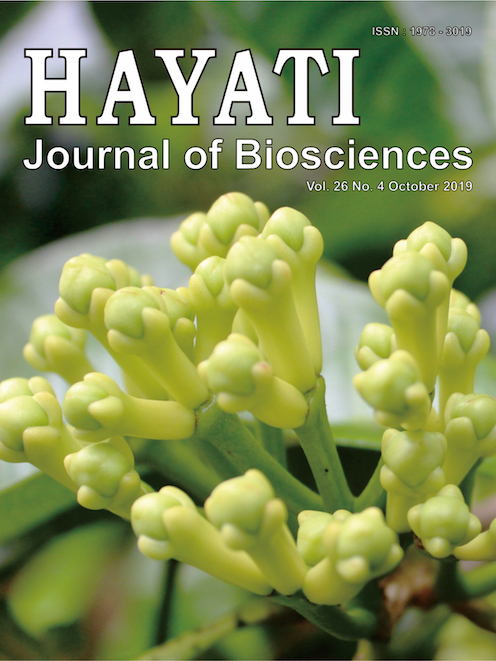Morpho-Agronomical Diversity of Forest Clove in Moluccas, Indonesia
Abstract
Forest clove (Zyzygium aromaticum) is a type of wild clove found in Moluccas. The increasing interest of farmers in cultivating this plant leads to complete their information of morpho-agronomical characteristics which could provide diversity reflecting morpho-agronomical their distribution areas. This study aimed to characterize the morpho-agronomical traits of Forest clove plants in Moluccas. By survey, Forest clove more than 15 year old tree totalling of 50 populations were observed their 54 morpho-agronomical characteristics in two areas (Ambon and Seram) from March to June 2018. Two aromatic cloves, namely Tuni and Zanzibar were used for comparative analysis. The results showed that Forest cloves had a similarity of 78% among the population and grouped into 3 groups with a morpho-agronomical variation of 22%. On the contrary, Forest cloves and comparators (Tuni and Zanzibar) had morpho-agronomical differences of 58%. Based on the main component analysis, there were 11 most influential characters of Forest cloves (leaf size index, leaf length, leaf width, leaf area, petiole length, flower length, diameter of flower tube, ripe flower weight, fruit length, fruit width, and fruit weight) which could be descriptors for this plant species.Downloads
HAYATI J Biosci is an open access journal and the article's license is CC-BY-NC. This license lets others distribute, remix, tweak, and build upon author's work, as long as they credit the original creation. Authors retain copyright and grant the journal/publisher non exclusive publishing rights with the work simultaneously licensed under a https://creativecommons.org/

























.png) IPB University
IPB University Department of Biology
Department of Biology The Indonesian Biological Society
The Indonesian Biological Society 

